I was very wrong about THQ. Terribly wrong. No matter how many warning signs were there, no matter how much financial turmoil and public humiliation the company went through, I still believed that someone, somehow, would save them before they went under. I never believed that about Midway, Acclaim, or any of the other publishers that have found themselves suddenly, tragically defunct over the last decade or two, and I don't necessarily have the clearest understanding of why I felt differently about THQ. The closest I can figure is that my appreciation for THQ often stemmed from the company's willingness to take weird, sometimes baffling, often interesting risks. Yes, it was one of those risks, the ill-fated uDraw tablet, that ultimately proved to be THQ's fatal, self-inflicted bullet. But over the 23 years of THQ's existence, the publisher amassed a catalog of games and franchises that rivals--at least in quality, if not financial success--those of the biggest publishers in the industry. I honestly believed it deserved better than the unceremonious divvying of its assets that ultimately came to fruition this past week. Alas, better was not destined to be.
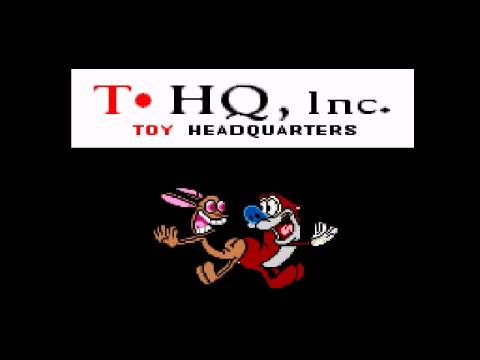
Instead, THQ is going through a slow, painful dissolution process. After amassing a bit more than $70 million in cash from the sale of its currently active franchises, all that's left of THQ is a series of empty desks, unplugged telephones, and a few leftover workers necessary to help scatter the company's ashes into the wind. Jason Rubin, whose air of confidence when taking over as company president during the peak of the company's uncertain days helped proliferate the notion that the publisher could and would be saved, has found himself in the unenviable position of trying to explain to everyone what happened, and why it didn't work.
To hear him tell it in this brief but informative interview on Game Informer, it sounds like THQ had truly believed they'd saved themselves when Clearlake, a venture capital firm with designs on the company, had agreed to purchase it in whole for a seemingly unremarkable sum of $60 million. Even as that news broke last December, I remember thinking the number seemed low, even for a company drowning in debt. Turns out, THQ's creditors felt similarly, blocking the deal via a court order and effectively setting in motion the events of this past week, where franchises and developers were sold off to the highest bidder, and THQ, as a publishing entity, became another headstone in the game industry's overstuffed graveyard.
In some respects, maybe it should simply be viewed as impressive that THQ survived this long at all. This is a company that began inauspiciously, arriving in the early '90s as Toy Headquarters, a company created by former LJN co-founder Jack Friedman. The earliest games in THQ's catalog were of the sort that led one to believe this was just another company trying to cash in on the licensed video games craze of the 16-bit era, with scattered titles based on Home Alone, the Power Rangers, and The Ren & Stimpy Show, among others. But then, in the late '90s, professional wrestling came to THQ, and along with it came a prolificacy that, up until its most recent turmoil, never receded.
Licensed games were, for many years, THQ's apparent bread-and-butter. The WCW and eventual WWE licenses proved to be THQ's most enduring legacy there, but THQ also produced tons of movie and TV series licensed games, including several major Disney and Nickelodeon properties. Based on the sheer volume of licensed games THQ produced during this time, you'd be forgiven for thinking all they were out for was a quick, easy buck. But in-between the margins, THQ was quietly putting out numerous interesting, original games, some of which, like Red Faction, Company of Heroes, Destroy All Humans, and Saints Row, went on to become enduring brands for the publisher. Others, like Alter Echo, Sphinx and the Cursed Mummy, and 50 Cent: Blood on the Sand (I refuse to call this a "licensed" game) at least proved interesting one-offs.
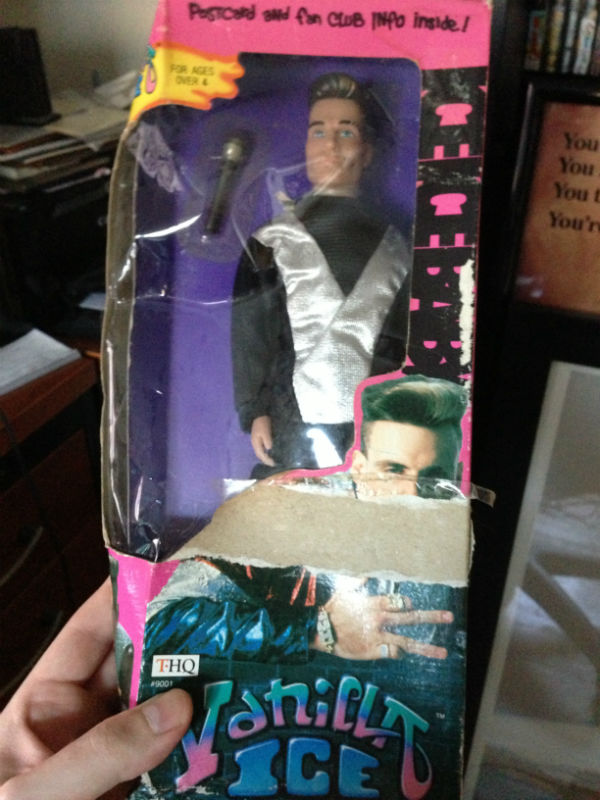
We, of course, all know exactly where THQ went wrong. The company was already suffering badly from diminished sales back in 2009, as the recession took hold and video games on the whole saw a major dip in revenue. Tragically, it seems THQ was poorly positioned to weather that storm. Its kid-friendly games suddenly found themselves ignored as children looked to free games on the web, leaving the publisher with a lot of licenses it couldn't leverage properly. Things just kept getting worse from there. The Red Faction franchise was shelved after poor sales and critical reception for the last entry, Armageddon; the release of Homefront, despite its strong sales, still resulted in stock price dips, due presumably to the lackluster critical response; and then there was uDraw, the inexpensive, but utterly unnecessary tablet device that, despite some reasonable interest on the Wii, never justified the publisher's apparently ludicrous effort to push it out onto all console platforms. If you want to point to a single symbol of THQ's demise, one need only point to the warehouses full of unsold uDraw tablets, which might as well have been buried in the desert alongside barrels of illegal toxic waste and copies of E.T.: The Extra-Terrestrial.
Yet, despite these missteps, one couldn't help but feel for the company in its darkest hour. It helped that in the last couple of years, THQ had doubled down on original IPs, bringing to bear such intriguing names as Darksiders, Metro, and de Blob, while whittling its licenses down to the mostly just the essentials. The last two WWE games, despite still being problematic in their own way, have nonetheless been the best of this console generation, while Obsidian's South Park: The Stick of Truth looked to be the first truly promising game based on the TV series since, well, ever. And then there were the smaller games, like Double Fine's Stacking and Costume Quest, which were certainly among my favorite downloadable games of the last few years. Suddenly, THQ's catalog looked largely admirable, the occasional Kung-Fu Panda game notwithstanding.
Unfortunately, admirable does not always translate into profitable. Some of those original properties--like Tomonobu Itagaki's Devil's Third, and the Guillermo del Toro project inSANE--were suddenly jettisoned to save cash. Even after Rubin took over and began talking his good game about how THQ would turn it all around, it seems likely that there never really was much of a chance to save THQ. Rubin perhaps believes otherwise, but when you look at things like the sheer volume of debt the company had amassed, and the perception that THQ was a company mired in mismanagement, it shouldn't be that surprising that time simply ran out for THQ's salvation. As a result, we are here, now, looking at THQ in the past-tense, instead of the present.
Which brings me to the future for THQ's franchises. For all the games the publisher had in development, it seems that nearly all of them went off to a high bidder. Publishers like Ubisoft, Take-Two Interactive, and Deep Silver swooped in and plucked away whatever appeared most potentially profitable. Let's look at the pieces that were bought, before considering the ones that weren't.
Ubisoft: South Park: The Stick of Truth, and THQ Montreal.
Obsidian's South Park game seemed like the most obvious gimme of the auction. The buzz around it has been mostly stellar, despite THQ offering few opportunities for anyone to actually sit down and play the thing. It helped that show creators Trey Parker and Matt Stone were so openly endorsing the project, offering up their own script for the game, and enthusiastically promoting it at last year's VGAs. Even after the news broke that South Park studios was suing to prevent sale of the game to another publisher, there was little doubt that publishers would still be interested. Now that Ubisoft has the rights, it'll be interesting to see how that legal filing shakes out. Maybe it'll be quietly dropped and the game will come out as expected, or maybe we're in for a fight. Regardless, little evidence would suggest that The Stick of Truth would ever be canceled. The game's too far along to just drop. It's basically just sitting there, waiting to make money.
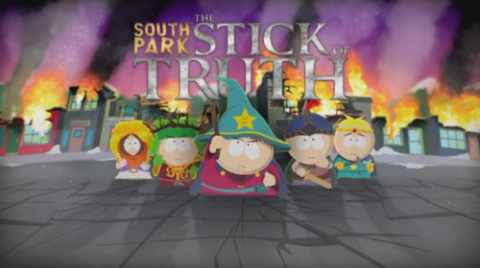
More intriguing is the status of THQ Montreal, the studio headed up by former Ubisoft employee Patrice Desilets. Desilets famously left his post as Creative Director on the Assassin's Creed series to forge his own creative path at THQ. This, of course, resulted in Ubisoft's quickly-dismissed legal injunction crying "non-compete!" Once that was out of the way, Desilets quietly went to work on his new game, which has the current title of 1666. Another game, Underdog (presumably of no relation to the cartoon series), was also apparently underway at the studio prior to the sale.
Now Ubisoft controls THQ Montreal, and once again, at least for the time being, Desilets. As has been said elsewhere, it's too early to say whether Desilets will remain on with the company now that he's back under his former employer's thumb. One can surmise that Desilets would be reluctant to abandon work on a project he's already spent this much time developing. It'll just come down to how much Desilets thinks of Ubisoft, given the awkward way they parted previously. As someone who has been there, I'll just offer this nugget of advice to our friend Patrice: If Jeff Gerstmann can find a way to function under the banner of CNET (or CBS Interactive, whatever) again, then really, anything's possible.
Koch Media/Deep Silver: Saints Row, Volition Inc., and Metro
Here is the weirdest player in this whole show. Koch Media, whose publishing arm Deep Silver is best regarded for having released Dead Island a couple of years back, suddenly does a $20 million cannonball into the pool, and ends up with some of the most interesting properties that were up for sale. No one would have expected it, but maybe that's for the best.
I don't know what the expected publishers (Activision, EA, and yes, Ubisoft) would have managed to do with Saints Row. EA's image of corporate sterility never seemed like a great fit for Volition's particularly unhinged brand of game design. Even the most "gritty" or "mature" games at EA all have a feeling of cold calculation that appears born out of endless test marketing. Saints Row has never felt like a franchise interested, let alone invested in worrying about what the consumer will think. To that end, perhaps Activision would have been a better fit, though that publisher's apathy toward the open-world action genre--as evidenced by the lackluster push given to Prototype 2, and the strange cancellation of True Crime: Hong Kong (which, as we all know, went on to be one of last year's surprise hits in Sleeping Dogs)--says to me that Activision isn't much interested in this kind of game right now. And Ubisoft? I've no doubt they'd have allowed Volition the kind of freedom their success has been predicated upon thus far, but they obviously had their eyes (and wallets) targeted elsewhere.
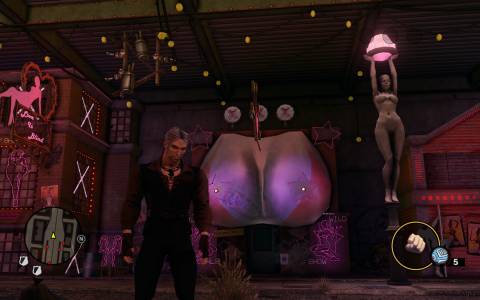
So now it's Deep Silver, by way of Koch, calling the shots. Champaign, Illinois' contribution to the game industry is now owned by a German media conglomerate. Should we be worried? Right now, I don't think so. If there's one thing that Deep Silver and its sometimes absurd marketing has taught me, it's that Deep Silver isn't afraid to get weird. In some cases, that's been more a detriment than a boon, but in the case of Saints Row, I don't foresee a company like this paying as much as it did just to go ahead and meddle with what made it successful in the first place. Koch bought Saints Row because it's good at being Saints Row. Turning it into something else would be foolhardy and pointless.
As for Metro, I expect that Koch will release Last Light and decide what to do from there. That game is, similarly to South Park, not that far off from completion. There's no reason to believe it won't release at least close to on-schedule. Where that franchise goes from there is anyone's guess, but if Last Light proves successful, don't be surprised if Deep Silver tries to make a deal with 4A to turn it into one of its tentpole franchises.
Crytek: Homefront
I joked in my official news write-up of the auction that Crytek had bid on Homefront for reasons that were beyond me. Truthfully, I can actually understand why. Crytek already had a studio working on The Next Great Sequel in the Homefront Franchise, and by ponying up the pittance required to purchase the brand, the developer not only doesn't have to drop the work it's already put in on the game, but can negotiate with another publisher for distribution rights pretty much squarely on their own terms. $500,000 is barely the cost of a house nowadays, so of course they'd pick it up. Whether or not anyone will care about Homefront beyond that sequel is anyone's guess, but the immediate risk was so low that this just seemed like a no-brainer.
Sega: Relic, Company of Heroes
There's not much to say here about this purchase other than, "well, it kinda makes sense." Sega has recently acquired the Warhammer license, which it then handed off to Creative Assembly. Now it has Relic, makers of the popular Warhammer 40,000: Dawn of War strategy games. Theoreitcally, all Sega would need to do is snag the 40,000 license and they'd control both Warhammers. That's just smart business, picking up a developer that already has experience with a popular license. You can say whatever you want about Sega's own occasional financial weirdness, but right now they're not in a bad position, nor are they likely to somehow step in and ruin the Company of Heroes franchise. It might not be the publisher's priority, but Company of Heroes 2 will almost assuredly come out as expected. This is probably the least strange of all the purchases, really.
Take-Two: Evolve, WWE License (?)
This is, to me, the most intriguing of all the sales. Granted, a big part of that is that we really don't know very much about Turtle Rock Studios' Evolve, a game that has only been announced in the most vague of terms as a shooter based on CryEngine 3. Interestingly, Turtle Rock put in its own bid of $250,000 to attempt to buy back the IP, but they were outbid by more than $10 million by Take-Two, who obviously sees something in the property. Take-Two is a publisher that reminds me a great deal of THQ, albeit a much more successful version of it. Outside of its sports and Rockstar-brand properties, its catalog of original games often seemed of a similar ilk to that of THQ's. In the case of Evolve, I don't know much about how this will pan out for Turtle Rock, though I imagine that if 2K is willing to go to bat for millions of dollars, then that game's development is probably safe.
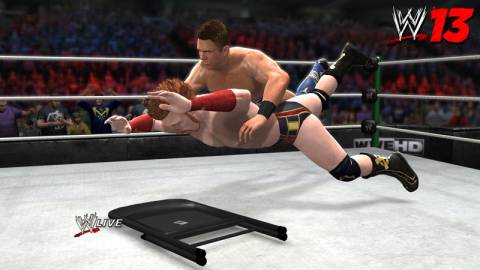
Which leads me to the current x-factor in the WWE license. This license, so long THQ's bread-and-butter, was not part of the auction. Any number of reasons could have contributed to this, though undoubtedly at least some of them pertained to WWE's own role as a creditor for THQ. The publisher reportedly owed the pro-wrestling juggernaut tens of millions in unpaid licensing fees, which would of course complicate any attempts to simply sell off the license. IGN reported earlier this week that 2K had emerged as a potential buyer in a separate deal, though nobody will confirm that thus far. Speculatively speaking, the idea of 2K taking over WWE games doesn't necessarily fill me with dread. This is a company that, for many years, delivered some of the best sports games out there, and at least in the case of its NBA franchise, it still is. Now, wrestling games and actual sports games are different beasts, but if 2K were to take over the license, I have to believe they'd look to those now unemployed shepherds of the franchise at THQ for guidance on how to proceed. And they should. Guys like Cory Ledesma, who have spent more years living and breathing wrestling games than is perhaps healthy, are now free agents, and if there's any justice in this world, they'll be picked up by whoever picks up this license.
Which isn't to say I'd necessarily love for them to just continue on as they have been. While I honestly thought WWE '13 was pretty great, I think the grand Yuke's experiment ought to end. There are great ideas in every Yuke's game that are often awkwardly executed, either because the talent, or the understanding required to make them happen simply wasn't there. Yuke's has never been my favorite wrestling game developer, and I think it's time for a new perspective to rear its head. If 2K were willing to take their time and find the right developer for this franchise, then the sky's practically the limit. If they just buy the license and drag Yuke's back into the fray for the sake of getting a game out this year, well, we'll at least see if they're able to make good on the promise of WWE '13 in the next generation. I, frankly, remain unconvinced.
One Last Thing (Long Way Down)
And then there are the leftovers. Vigil Games, the developers behind the brilliant Darksiders series, are currently without an owner, and as of now, nonexistent. As someone (whose name I unfortunately can't recall right now) mentioned on Twitter, the thing that may have left Vigil out in the cold is the simple fact that they had most recently released a game. Whatever Vigil was up to next was still so early in production that publishers weren't willing to bite. That's one of those cold, hard facts of the video game industry that unquestionably sucks, but nonetheless holds consistently true: you're only as strong as your next project.
Rubin, for his part, seems determined to try to find a buyer for Vigil outside of the auction process. I hope he is successful, because what I've seen of this studio tells me they're capable of doing special things. They deserve a chance to succeed or fail on their own terms, and not as a result of a parent company's mismanagement. Whether they'll get that chance or not remains unclear, but I continue to hope.
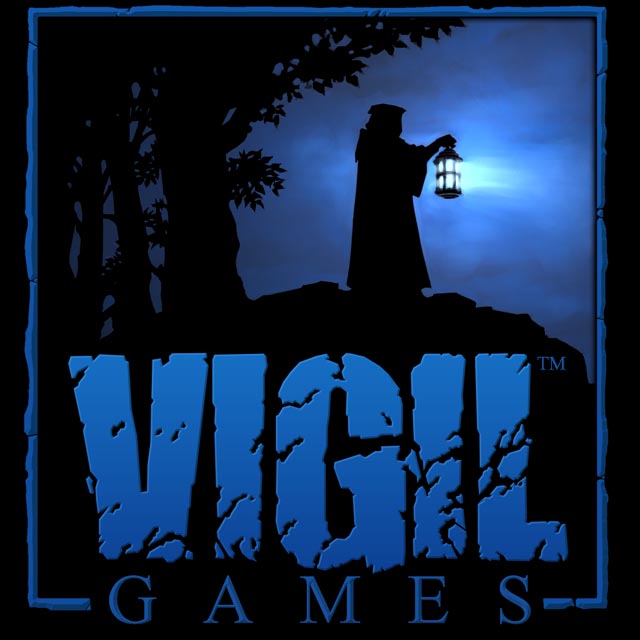
Lastly, there are the many legacy brands held by THQ but unused in recent years. These, according to Rubin, will be sold at a later date as part of a separate initiative. This means that in the future, we could be seeing new entries in the Red Faction, Destroy All Humans, or, god willing, 50 Cent franchises. Were that to happen, it would please me, if only for the sake of seeing the last vestiges of THQ find success divorced from the strange, sometimes destructive decisions of their former parent company. And if not, if nobody picks up these brands, or does with the sole notion in mind of sitting on them until such time as they seem useful again, then I suppose I'd be okay with that too. After all, it's not as if we really need another Big Mutha Truckers game right now...or ever.
Whatever the fate of THQ's unsold properties, the end result for the company will be the same. THQ is gone, and it's never coming back. As someone who has loved his share of THQ games over the years, that's a bitter pill to swallow, but one that perhaps, deep down, I knew I'd have to swallow eventually. Comeback stories in the games industry are a rarity, and there were few indications that THQ would ever buck the trend. And yet, I still held out hope, if only for not wanting to see the producers of some of my favorite games of all time drift glumly into that good night.
To everyone who found themselves affected by THQ's closure, I wish you the best, and my gratitude for the many hours of entertainment you have provided me. You deserved better, and I'm sorry you didn't get it.
--A
261 Comments